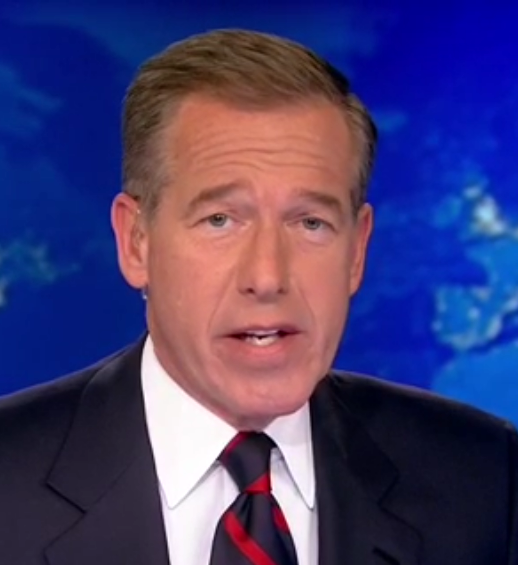NBC’s Brian Williams forgot basics of journalism
April 2, 2015
Truth in reporting. Stick to the facts.
Those are among the first rules scholastic journalism students learn. NBC “Nightly News” anchor and veteran journalist Brian Williams seems to have forgotten the basics of Reporting 101.
Williams, who is currently serving a six-month suspension from NBC News, last month found himself at the center of the news instead of reporting it. What got him into trouble? It seems that in retelling a 12-year-old story in which he claimed he was on a helicopter with a news crew that was hit by an enemy-rocket grenade launcher during the 2003 Iraqi evasion, he embellished the truth.

For years, no one questioned his details until that night at a New York Rangers hockey game on Jan. 29. With NBC cameras rolling, Tim Terpak, a retired veteran who was working ground security during the helicopter ordeal, received a public tribute at the game. The PA announcer recounted Williams’ version of the story once again as Terpak and Williams were shown on Madison Square Garden’s GardenVision video display system.
After watching this on television, crew members from the 159th Aviation Regiment who were on the Chinook helicopter that was hit and shot down in Iraq went to Stars and Stripes, the military’s newspaper, to finally set the record straight. They claimed that Williams was on a different helicopter, not the one that was hit, and landed an hour later without any problems. Williams’ admission about the inaccuracies in his story came soon after.
Williams did offer an on air apology during his NBC Newscast Feb. 4, “I don’t know what screwed up in my mind that caused me to conflate one aircraft with another.”
This revelation was a blow for journalists everywhere, especially student journalists like me who idolized Williams’ work and looked to him for unbiased, reliable news. His fumble with the facts was a tragic let down for students who are beginning to learn the basics of reporting because as a reliable veteran, Williams should have known better than to break the most basic journalism rule — accuracy, accuracy, accuracy.
When someone with this much responsibility fails the public, it makes people question where they should put their trust. In a world full of biased and non-factual news, viewers trusted reporters like Williams to deliver the unadulterated truth. But now, it seems that the public can’t trust anyone.
With all of the racial tensions, the rising number of terrorist groups popping up around the world and two political parties at home who can’t for the life of them differentiate between the truth and their version of the truth, we need journalists to skip the bias and get to the facts so we can understand the events of today.
These days anyone with a keyboard and Internet access has the ability to publish “news,” and if members of the public are not savvy readers, chances are they won’t be able to tell the difference between a factual story and a nonfactual, bias-riddled, faux news story.




